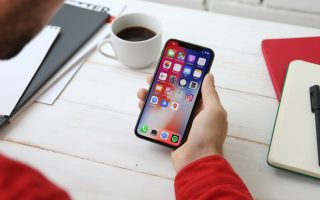For years, Americans have lived under a patchwork of state privacy laws, leaving consumers confused and vulnerable. Now, Congress is considering the American Privacy Rights Act (APRA), a bipartisan proposal that would create a unified national standard for data protection. If passed, APRA would give individuals stronger rights over their personal information, limit how companies collect and sell data, and establish clear enforcement mechanisms. For seniors who increasingly rely on digital platforms for healthcare, banking, and communication, this act could be a game-changer.
What the Act Promises
The APRA introduces several key protections designed to put consumers back in control:
- Data minimization: Companies could only collect information necessary for specific, disclosed purposes.
- Right to access and delete: Individuals could see what data businesses hold about them and request its removal.
- Opt-out of data sales: Consumers could stop data brokers from selling their personal information.
- National consistency: APRA would override conflicting state laws, creating one clear set of rules.
- Enforcement power: The FTC, state attorneys general, and even private lawsuits could hold violators accountable.
Why Seniors Should Pay Attention
Older adults are among the fastest-growing users of digital services, from telemedicine to online banking. Without strong protections, sensitive information—medical records, financial transactions, and personal identifiers—can be shared or sold without consent. Seniors are also prime targets for scams, and expanded data rights could reduce exposure. By giving individuals the ability to opt out of data sales and demand transparency, APRA would help retirees maintain independence and security in the digital age.
The Debate Around APRA
Supporters argue that APRA finally gives Americans the privacy rights long enjoyed in Europe under laws like the GDPR. They see it as a long-overdue safeguard against corporate overreach. Critics, however, worry that revisions weakened certain protections, including civil rights provisions, under political pressure. Businesses raise concerns about compliance costs, while advocates insist that protecting personal data is worth the investment. The debate reflects a broader tension: balancing innovation and convenience with individual rights.
Healthcare Data Under the Microscope
Healthcare is one of the most sensitive areas affected by APRA. Seniors often rely on Medicare portals, telehealth services, and electronic prescriptions. Under the act, providers would face stricter rules about how patient data is shared and used. This could reduce the risks of medical histories being exploited for marketing or insurance decisions. For retirees managing chronic conditions, stronger privacy protections could mean greater peace of mind.
Financial Security and Digital Transactions
Banking and retirement accounts are another area where APRA could make a difference. By limiting how financial institutions share transaction histories, the act would reduce profiling and predatory marketing. Seniors who value discretion in their financial affairs would gain new tools to protect themselves. While fraud detection remains important, APRA aims to strike a balance between security and privacy.
What You Can Do Now
While APRA is still under debate, seniors can take steps today to safeguard their digital privacy:
- Review privacy settings on apps and social media.
- Use strong passwords and two-factor authentication.
- Limit personal information shared online.
- Stay informed about legislation to understand how new laws may affect your rights.
A Chance to Reclaim Control
The American Privacy Rights Act could mark a turning point in digital privacy, offering Americans—especially seniors—greater control over their personal data. While the bill is still under consideration, its passage would signal a shift toward stronger protections in an era where data is as valuable as currency.
Do you think national privacy rights are overdue, or should states continue to set the rules? Share your thoughts below.
You May Also Like…

Teri Monroe started her career in communications working for local government and nonprofits. Today, she is a freelance finance and lifestyle writer and small business owner. In her spare time, she loves golfing with her husband, taking her dog Milo on long walks, and playing pickleball with friends.
Read the full article here



















